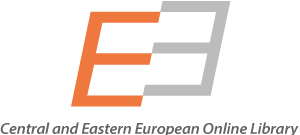OSOBE SA INVALIDITETOM KROZ PRIZMU DIGITALNIH MEDIJA – OD ETIKETIRANJA I DISKRIMINACIJE DO INKLUZIVNIH MEDIJSKIH SADRŽAJA
DOI:
https://doi.org/10.7251/FPNDP2405137KKljučne reči:
osobe sa invaliditetom, digitalni mediji, medijski sadržaj, profesionalno izvještavanje, socijalni model invaliditetaApstrakt
Izvještavanje o osobama sa invaliditetom može kod novinara izazvati etičku i profesionalnu dilemu u kontekstu pristupa događaju ili temi. To je uglavnom determinisano predrasudama da osobe sa invaliditetom u medijskom prostoru treba tretirati na drugačiji način. Međutim, izvještavanje o osobama sa invaliditetom podrazumijeva poštovanje etičkih i profesionalnih standarda u novinarstvu, odnosno jednak pristup kao i drugim akterima događaja ili priče. Ne treba da invaliditet bude tema sam po sebi i da se osobe sa invaliditetom predstavljaju kao „jadne“ ili „superheroji“. Cilj rada je da se ukaže na to da osobe sa invaliditetom u medijima treba prikazivati na osnovu socijalnog modela invaliditeta koji fokus stavlja na društvo i aktivnosti koje su preduzete kako bi osobe sa invaliditetom bile ravnopravne. Kvantitativnom i kvalitativnom analizom sadržaja digitalnih medija u Bosni i Hercegovini (BiH) razmatrana je prisutnost osoba sa invaliditetom i zastupljenost socijalnog modela kao primjera inkluzivnih medijskih sadržaja. Uzorak za analizu sadržaja su digitalni formati vodećih javnih i komercijalnih, elektronskih i štampanih medija u BiH. Zaključuje se da proaktivno i konstruktivno medijsko izvještavanje, uz uvažavanje normativno utemeljenih etičkih i profesionalnih standarda o osobama sa invaliditetom, predstavlja jedan od primarnih preduslova za percepciju javnosti osoba sa invaliditetom kao jednakih i ravnopravnih članova društva.
##submission.downloads##
Objavljeno
Broj časopisa
Sekcija
Licenca

Ovaj rad je pod Creative Commons Aуторство-Nekomercijalno-Bez prerade 4.0 Internacionalna licenca.





